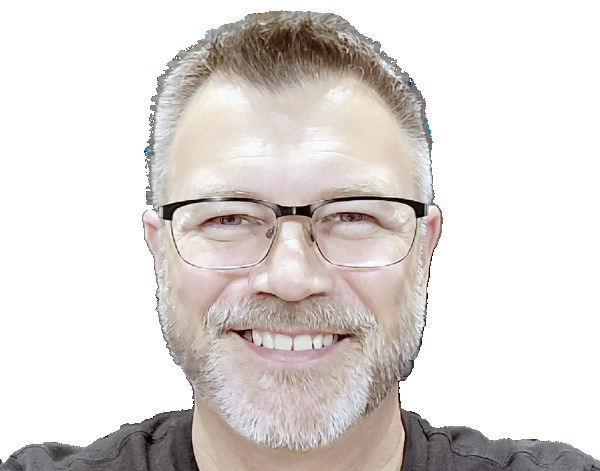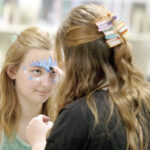Kyle Troutman: In celebration of Dr. Martin Luther King, Jr. Day

Though the snowy roadways would have canceled school and kept many others at home from work, Monday was a federal day off for another reason, the celebration of the Jan. 15, 1929, birthday of Dr. Martin Luther King, Jr.
The premier role model for nonviolent activism and champion of the Civil Rights Movement, King’s impact on America remains one of the greatest legacies left by any activist in our country’s great history. In fact, only two other figures in U.S. history have their birthdays recognized by federal holidays — George Washington and Christopher Columbus.
Growing up in Little Rock, Ark., my awareness of MLK Day was never lost. I attended three K-8 schools in the Little Rock district, all of which were named after African Americans who left major legacies in the United States: Booker T. Washington Elementary, Dr. Martin Luther King, Jr. Elementary and (Paul Lawrence) Dunbar Middle School.
Through those years, MLK Day was a cause for education, a reflection on the Civil Rights Movement and the advancement of the country since that time toward equality for all.
Moving on to attend Little Rock Central High School, those conversations and celebrations grew more and more poignant as I grew in maturity enough to evaluate the world around me and what challenges to Civil Rights still remain strong around 40 years removed from the Voting Rights Act of 1965 and Civil Rights Act of 1968.
Even as the racial minority in every school I attended in Little Rock, MLK Day in my earlier years was painted with rose-colored glasses. As a middle class white kid, I grew up being proud for my African American friends that they had risen to a level of equality for which they had fought for so long. I also felt lucky many of the struggles they faced I would never have to.
That was accented by my lifelong amputation. I saw that even if someone told me I couldn’t do something, it was because they didn’t think I could because I had one hand, not because I was one-handed and they didn’t like that.
My formative experience and compassion for many of my friends and the logic-less hatred they have endured because of the color of their skin rises to the top of my mind each January.
Living in Cassville now and raising my daughters here, also at the top of my mind is how I should pass along my experience and teach them about fairness and equality.
I find it to be a challenging task. According to Data USA, Barry County has a population of just under 35,000, and of that number, 81.9 percent (about 28,400 people) are non-Hispanic white. African Americans make up lees than half a percent of our county’s population (about 111 people).
How can I teach my children about such an important national social issue when they very rarely ever see the individuals who are affected by it?
We watch a lot of movies in our home, and on MLK Day, it is a tradition — in celebration and in education — to watch movies or documentaries that accurately depict the challenges and triumphs of the people for whom King fought.
We have embedded this ritual so much we have begun to run thin on films we have not seen. Our go-to, especially for our almost 9-year-old, has been “Ruby Bridges.” Her age, we hope, helps our oldest empathize with what it might have been like to integrate in the 1960s.
Another favorite of ours in recent years has been “Hidden Figures,” the true story of three African American women mathematicians and their contributions to the space race in the same decade. This movie is one of my favorite, as it weaves together the racist and sexist struggles of the movie’s inspiration, Taraji Henson, Octavia Spencer and Janelle Monae.
When we ask for suggestions of other films in the same vein, other lean heavily on two major films, “The Blind Side” and “The Help.”
While these are fine films for entertainment purposes, they fail in the message we hope to convey.
Instead of celebrating African American achievements outright, both do so via a superior white character who is the main reason for the minority’s success.
The white savior trope pervades western culture and discounts the efforts made through the 1960s and since then to reach true equality among races in our melting pot. Even “Hidden Figures” has its moments, as Kevin Costner’s character is crucial to the success one of the main characters. Yet, his “saviorism” only opened a door, not pushed the character through it. Once in the room, she did that on her own.
We hope our daughters see how the marginalized should be credited for their victories over injustice, and how we can celebrate those victories without trampling them with our own sense of progress.
We cannot make African American stories our own, but we can celebrate those stories and accomplishments with open hearts and support of our fellow men and women, no matter their race or ethnicity.
This week, I encourage everyone to take a moment and consider the perspective of so many of our fellow citizens that deal with direct or indirect racism every day.
More than 60 years after King’s “I Have a Dream” speech, I hope there is only one metric by which we judge another — content of character.
Kyle Troutman has served as the editor of the Cassville Democrat since 2014 and became Publisher in 2023. He was named William E. James/Missouri Outstanding Young Journalist for daily newspapers in 2017, and he won a Golden Dozen Award from ISWINE in 2022. He may be reached at 417-847-2610 or ktroutman@cassville-democrat. com.




